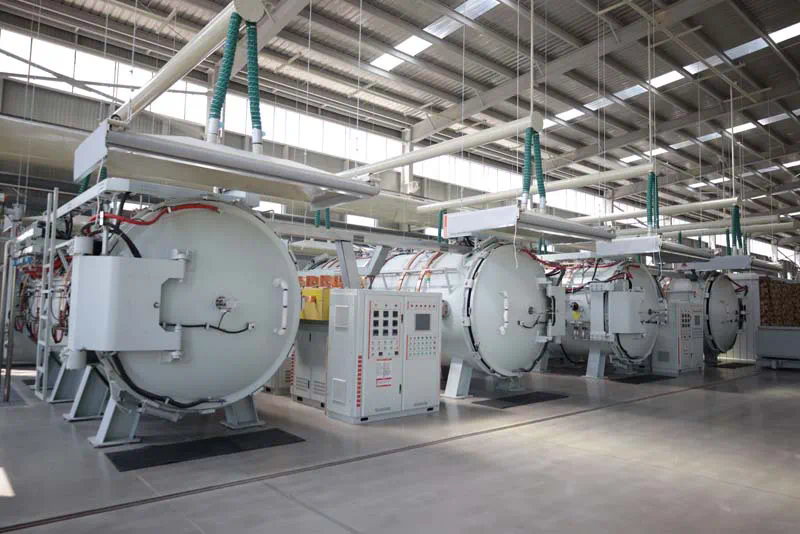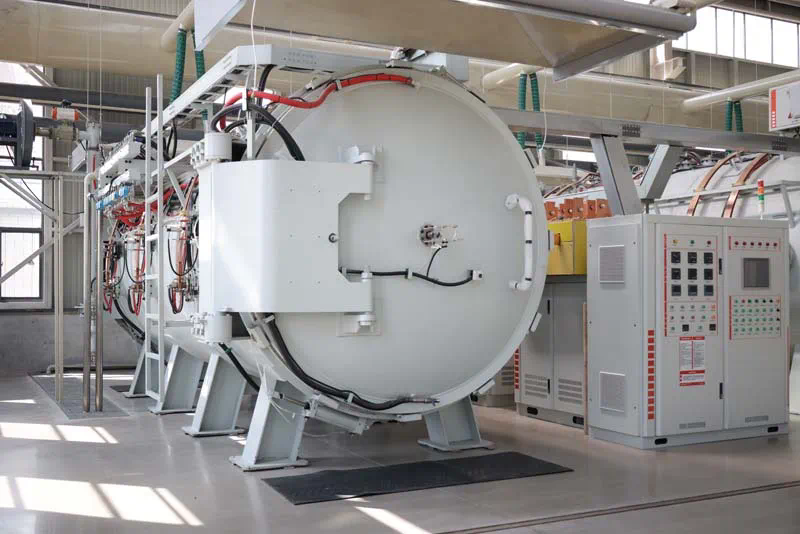How to Evaluate and Select the Right Silicon-Carbide Crucible Supplier
Selecting the right silicon carbide (SiC) crucible supplier is a crucial decision for any business or individual involved in high-temperature industrial processes, especially in sectors such as metallurgy, ceramics, and semiconductor manufacturing. The crucible plays a critical role in maintaining the integrity of the materials being processed, and the wrong choice can lead to costly production errors, inefficient operation, and long-term damage to the equipment.
Silicon carbide crucibles are known for their exceptional resistance to high temperatures, thermal shock, and chemical corrosion, making them an ideal choice for melting, casting, and holding metals or other high-temperature materials. However, not all SiC crucibles are created equal, and selecting a reliable supplier who can meet your specific needs is essential for achieving optimal performance and longevity.
In this article, we will explore the key factors to consider when evaluating and selecting the right silicon carbide crucible supplier. We will cover everything from material quality to supplier reliability, industry experience, and customer service. By the end of this article, you should have a clear understanding of how to choose a supplier who can provide high-quality crucibles that meet your technical, operational, and budgetary requirements.
Understanding the Role of Silicon-Carbide Crucibles
Before diving into the selection process, it’s important to understand the key attributes and functions of silicon carbide crucibles. These crucibles are used primarily for melting and holding molten metals at high temperatures. Due to the unique properties of silicon carbide, such as excellent thermal conductivity, resistance to thermal shock, and high mechanical strength, SiC crucibles are widely used in industries such as steel, non-ferrous metal casting, and semiconductor manufacturing.
SiC crucibles are designed to withstand temperatures upwards of 1,600°C (2,912°F) without cracking or degrading. They are also resistant to corrosion from molten metals, chemicals, and gases, which makes them ideal for various demanding applications. When choosing a supplier, it’s essential to ensure that their crucibles meet the specific standards required for your processes and materials.
Key Factors to Consider When Choosing a Silicon-Carbide Crucible Supplier
1. Product Quality and silicon carbide crucible australia Materials
The quality of the silicon carbide crucibles is the first and most critical factor to consider when selecting a supplier. Poor quality crucibles can fail prematurely, leading to interruptions in production and additional costs. High-quality SiC crucibles are made with pure silicon carbide or high-purity SiC mixtures, ensuring maximum durability and performance under extreme conditions.
The material composition of the crucible is essential to consider. Some suppliers may offer crucibles made from a mix of SiC and other materials like graphite, which may offer improved thermal conductivity but could reduce the crucible’s resistance to certain chemicals. It is important to ensure that the crucible material is compatible with the specific metals or substances you plan to work with.
2. Supplier Experience and Reputation
The supplier’s experience in manufacturing and supplying silicon carbide crucibles can be a significant indicator of their ability to meet your needs. Suppliers with a long history in the industry are more likely to understand the challenges and specific requirements of various applications. They may also have a better track record in product development and quality control, which can ensure that you receive reliable, high-performance crucibles.
To assess the supplier’s experience, look at their years of operation, customer testimonials, and case studies. A reputable supplier should be able to provide a list of satisfied clients and examples of industries served. Additionally, check whether they offer any guarantees or warranties on their products, which can indicate confidence in their manufacturing quality.
3. Customization and Technical Support
Every business or application may have unique requirements in terms of size, shape, material, and performance specifications for their crucibles. A good supplier should be able to provide customized solutions to meet these needs. This may include designing crucibles for specific melting points, custom sizes, or shapes that match your equipment.

Moreover, technical support is an essential aspect of selecting a supplier. Crucibles are used in extreme environments, and technical expertise is required to ensure that the chosen product will perform optimally. A supplier who offers expert advice, consultation, and troubleshooting support can help ensure that you select the best crucible for your application and maintain its performance over time.
4. Product Testing and Quality Assurance
It is crucial to choose a supplier that employs stringent quality control measures to ensure that each crucible is produced to high standards. A reliable supplier should offer product testing at various stages of production, including raw material inspection, molding, firing, and final inspection.
Some suppliers may provide certificates of conformity or other documentation to demonstrate that their crucibles meet specific industry standards, such as ASTM or ISO certifications. You should inquire about these certifications and ask the supplier to provide test reports that show the performance characteristics of their crucibles, such as resistance to thermal shock, corrosion, and wear.
5. Cost and Pricing Structure
While cost is a significant factor in supplier selection, it should not be the only consideration. Cheaper crucibles may not always provide the best value, especially if they fail prematurely or do not meet the required performance standards. It’s important to balance cost with quality and long-term durability.
Some suppliers may offer bulk discounts, long-term pricing agreements, or flexible payment terms, which can be beneficial if you plan to purchase large quantities over time. However, always ensure that the lower price does not come at the cost of quality. If a deal sounds too good to be true, it might be worth investigating further to ensure the supplier is reputable and reliable.
6. Lead Time and Delivery Reliability
Lead time is another crucial factor when selecting a crucible supplier. Delays in delivery can cause production disruptions and lead to costly downtime. It’s essential to choose a supplier with a track record of delivering products on time and within the agreed-upon timeframes.
Before making a purchase, ask the supplier for an estimated lead time and inquire about their capacity to meet your order size. Suppliers with a reliable logistics system and the ability to manage both small and large orders efficiently are typically the best choices.
7. After-Sales Support and Warranty
Good after-sales service is another sign of a reliable supplier. Crucibles may need to be replaced or serviced over time due to wear and tear, especially in industries where they are used continuously at high temperatures. A supplier with strong after-sales support can help you quickly replace defective crucibles, resolve any issues with performance, and ensure your production process continues without significant interruptions.
Additionally, inquire about warranties or guarantees offered on the crucibles. A warranty can give you peace of mind that the supplier stands behind the quality of their products and will work with you to resolve any issues.
8. Environmental and Safety Standards
Given the high temperatures at which silicon carbide crucibles operate, environmental and safety standards must be adhered to in both the manufacturing process and the end product. Choose a supplier who complies with relevant safety regulations and environmental policies in their production practices. This can ensure that the crucibles are not only high quality but also produced in a way that minimizes environmental impact and adheres to safety guidelines.
9. Technological Innovation

The crucible industry has seen advancements in material science, manufacturing processes, and design. A supplier who is actively involved in research and development (R&D) can offer innovative solutions that improve crucible performance, such as enhanced thermal shock resistance, increased longevity, or better compatibility with specific metals. Suppliers that invest in technology and product innovation can often provide you with higher-quality products that outperform older designs and help improve your overall production efficiency.
10. Local or Global Supplier?
When selecting a supplier, consider whether you prefer a local supplier or a global one. Local suppliers may offer quicker delivery times, reduced shipping costs, and easier communication. However, global suppliers may provide access to a broader range of products, more advanced technologies, and competitive pricing.
Evaluate your specific needs and decide if you prioritize local convenience or if the added benefits of a global supplier outweigh the logistical challenges.
Conclusion: Making the Right Choice
Evaluating and selecting the right silicon carbide crucible supplier is an investment that directly impacts the efficiency, safety, and quality of your operations. By considering the key factors discussed in this article—product quality, supplier experience, customization options, testing standards, cost, delivery reliability, and after-sales support—you can make an informed decision that ensures the longevity and success of your production processes.
Take the time to thoroughly assess potential suppliers, ask the right questions, and demand transparency in product specifications and performance guarantees. With the right supplier partnership, you can minimize operational disruptions, improve your product quality, and achieve long-term success in your industry.
https://iflatiron.com/




